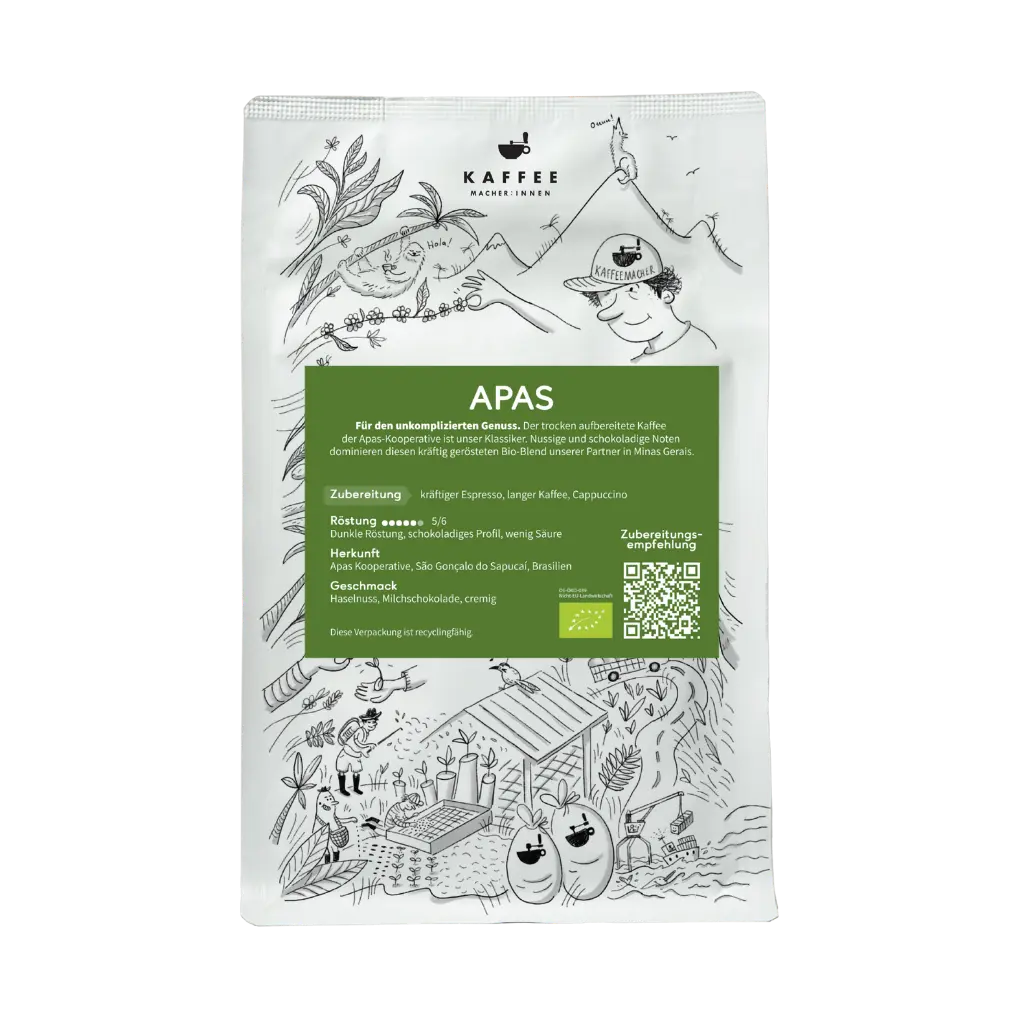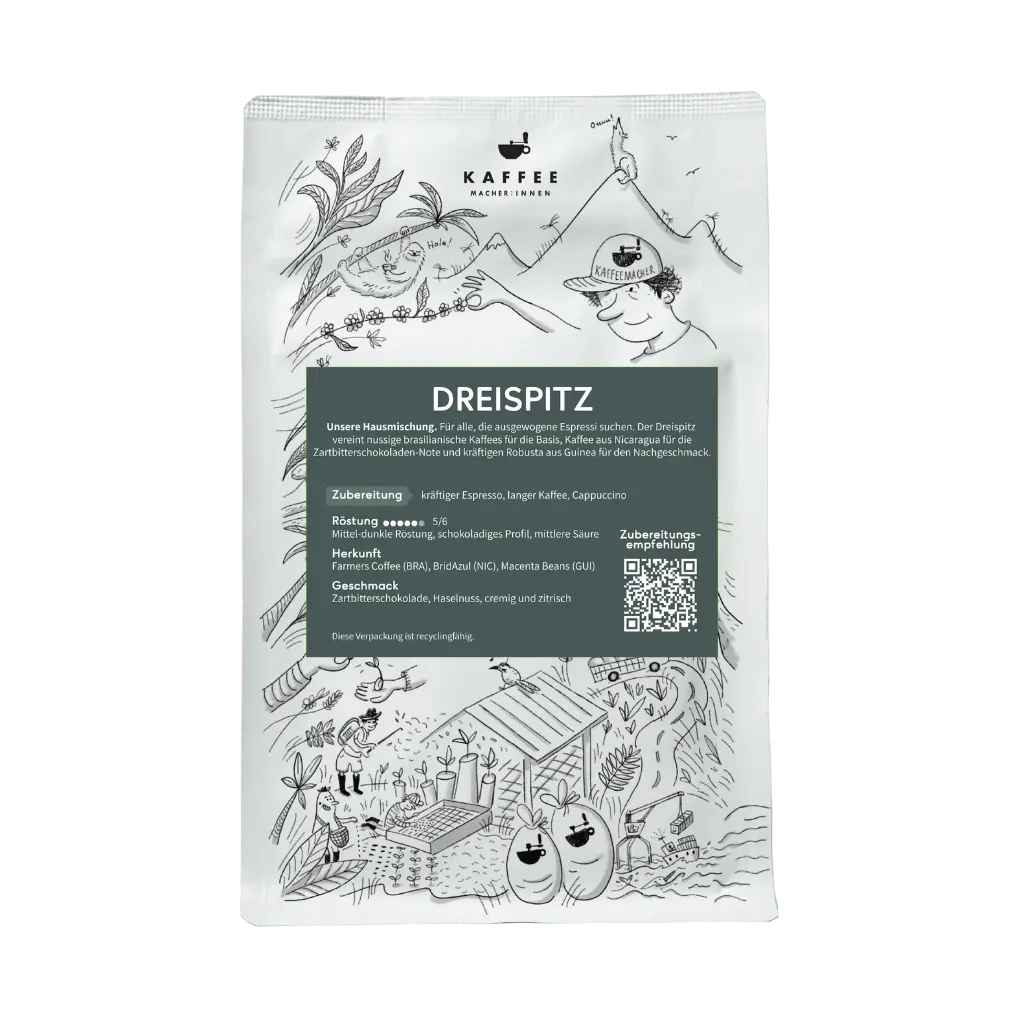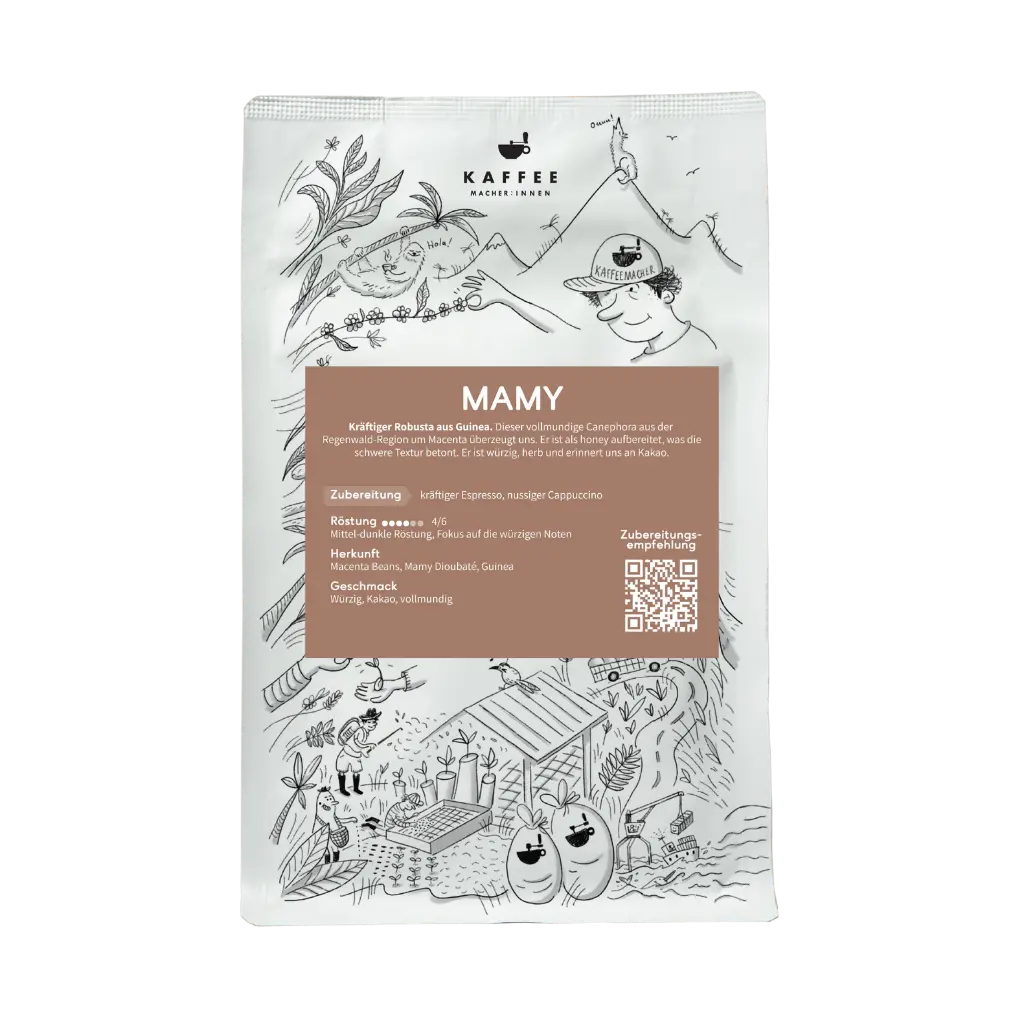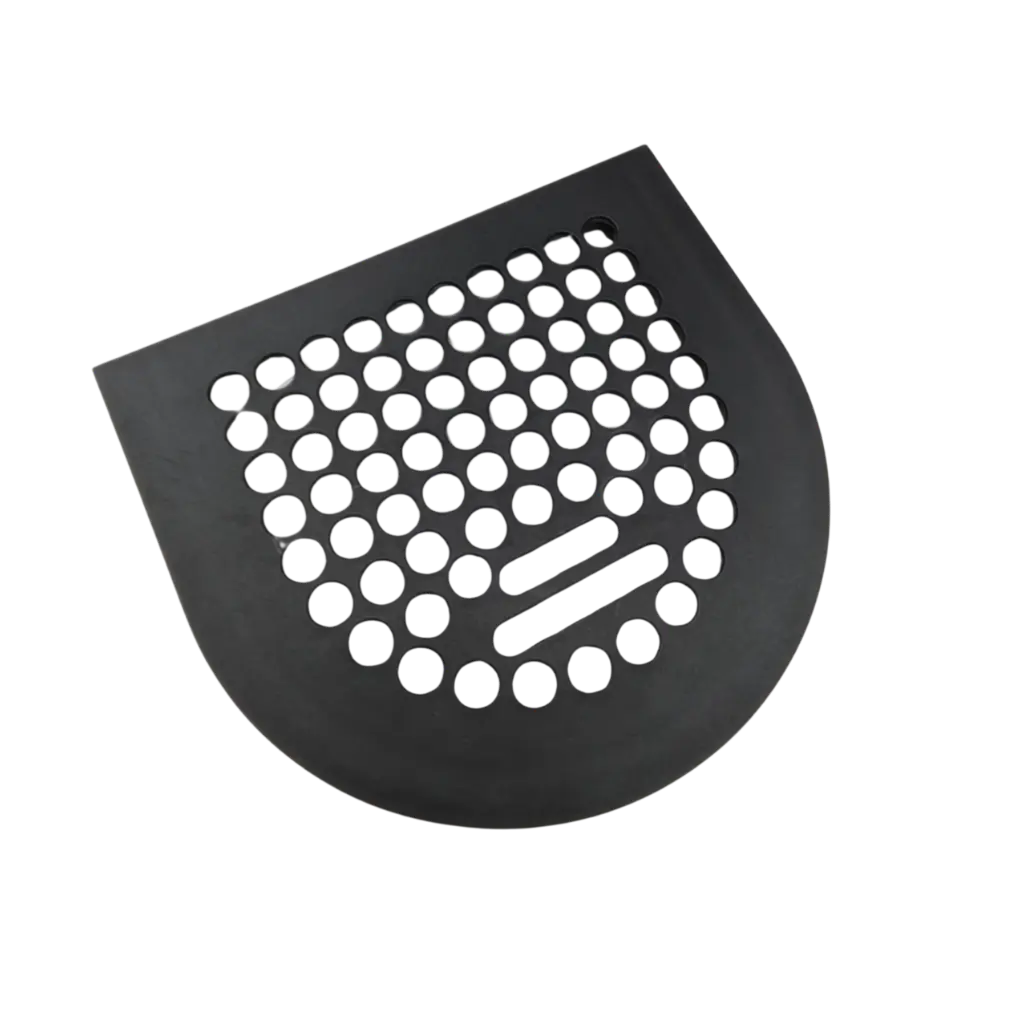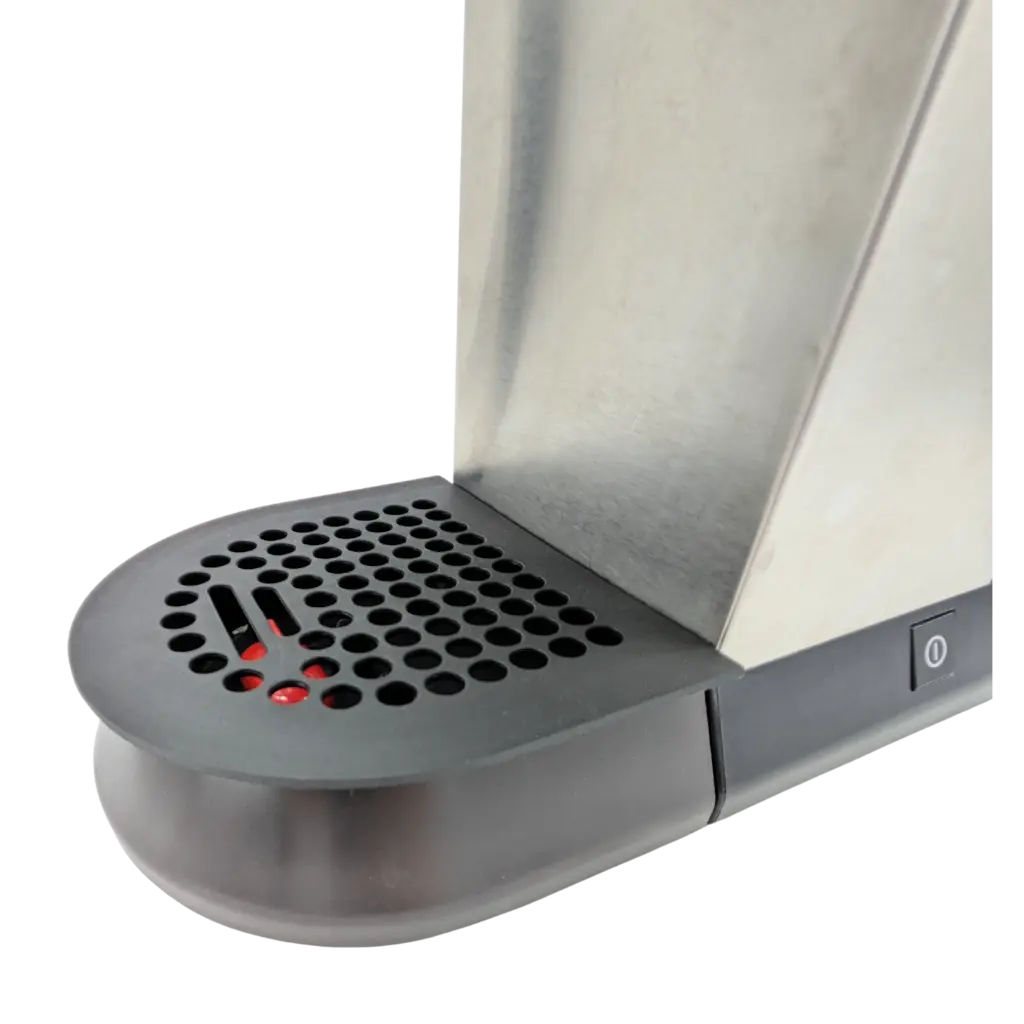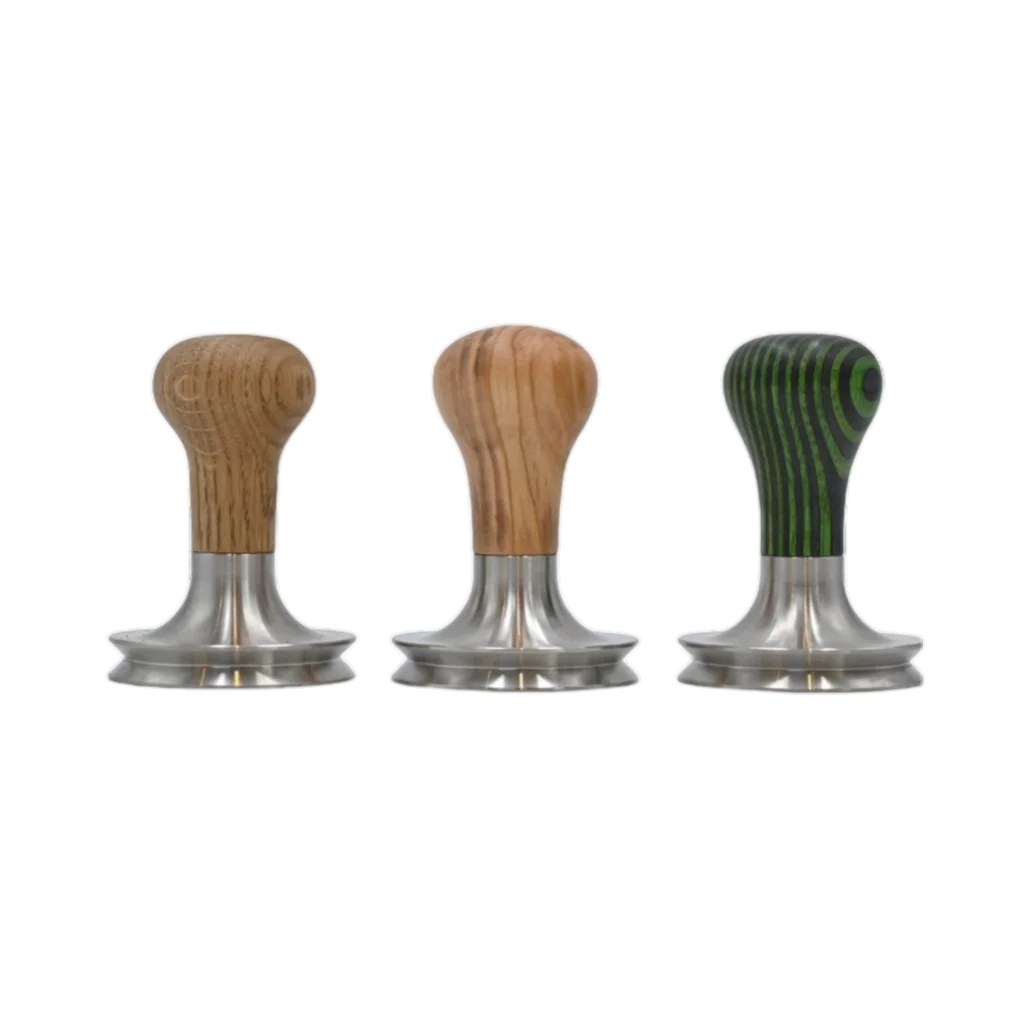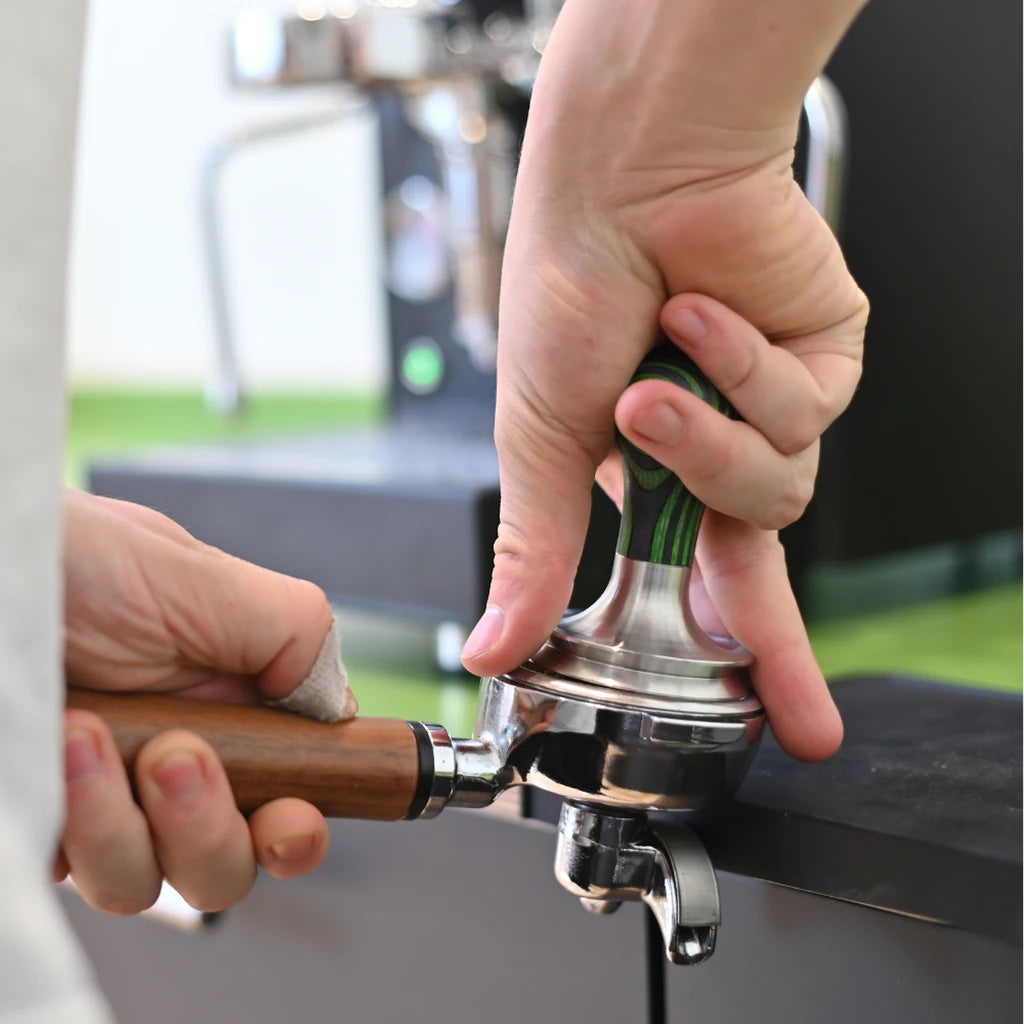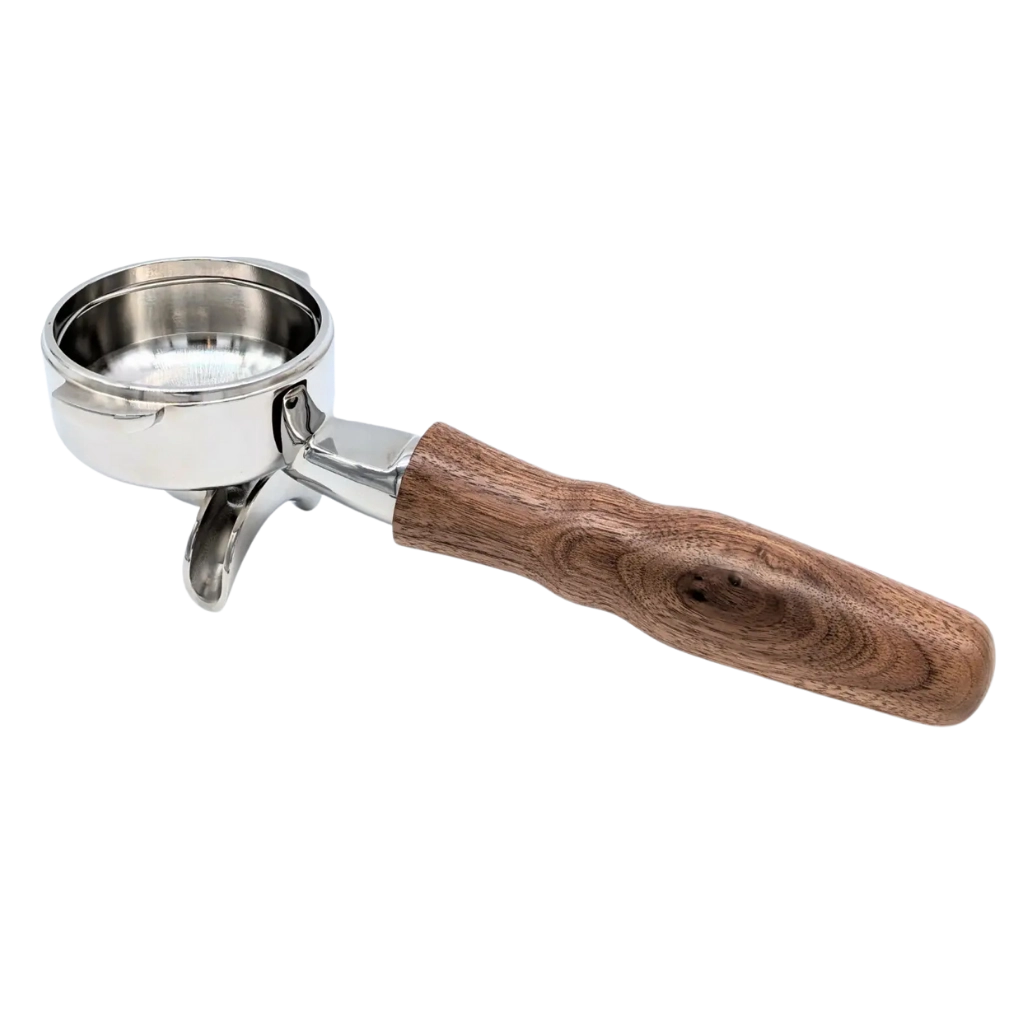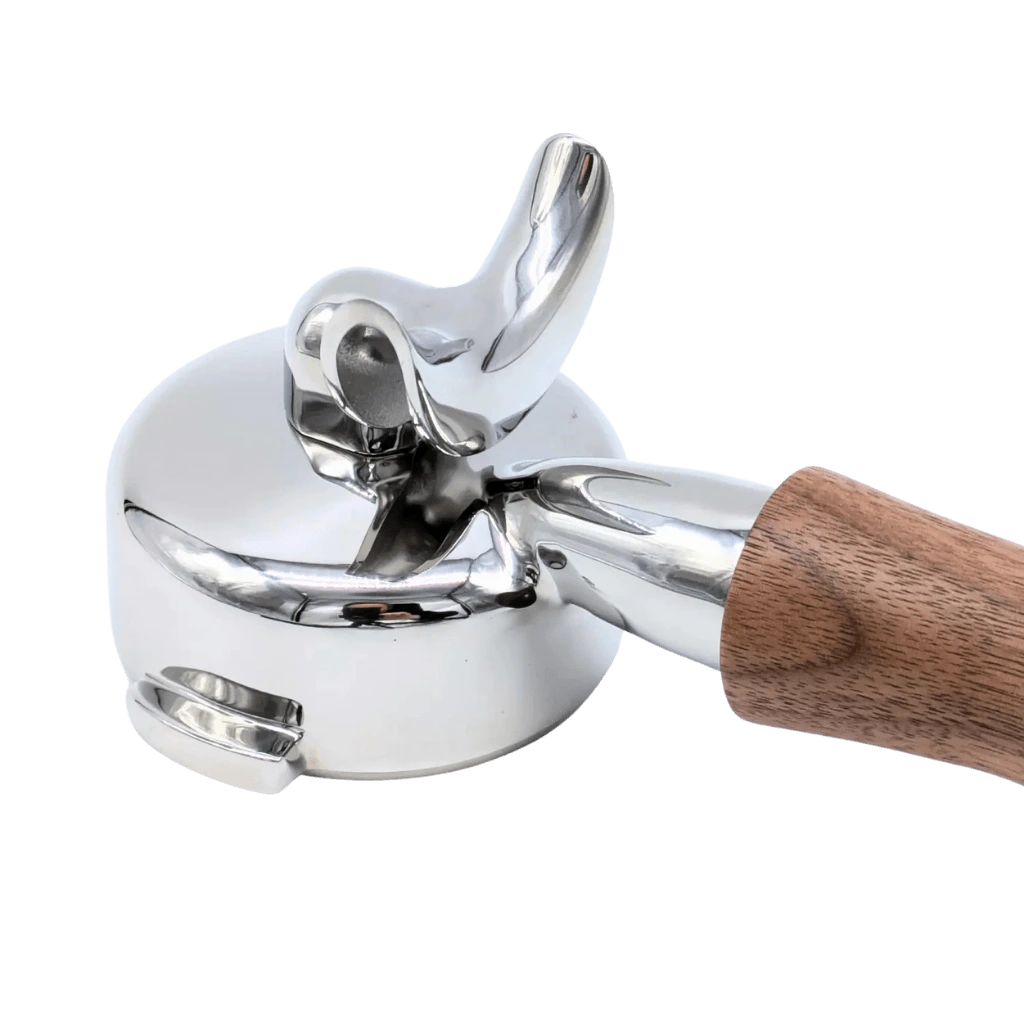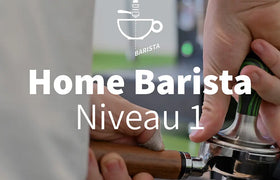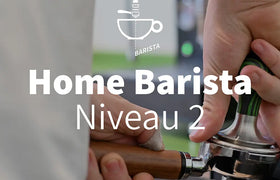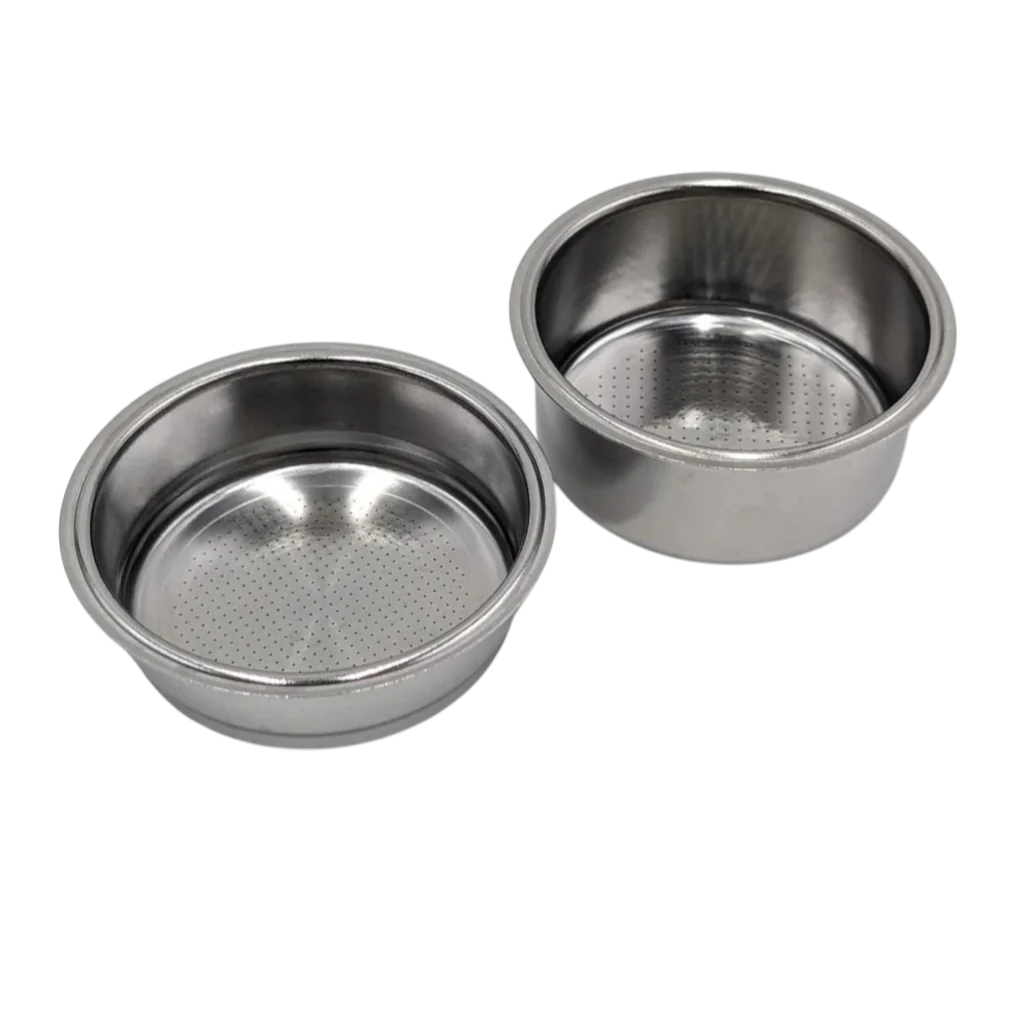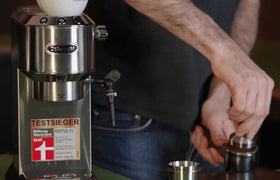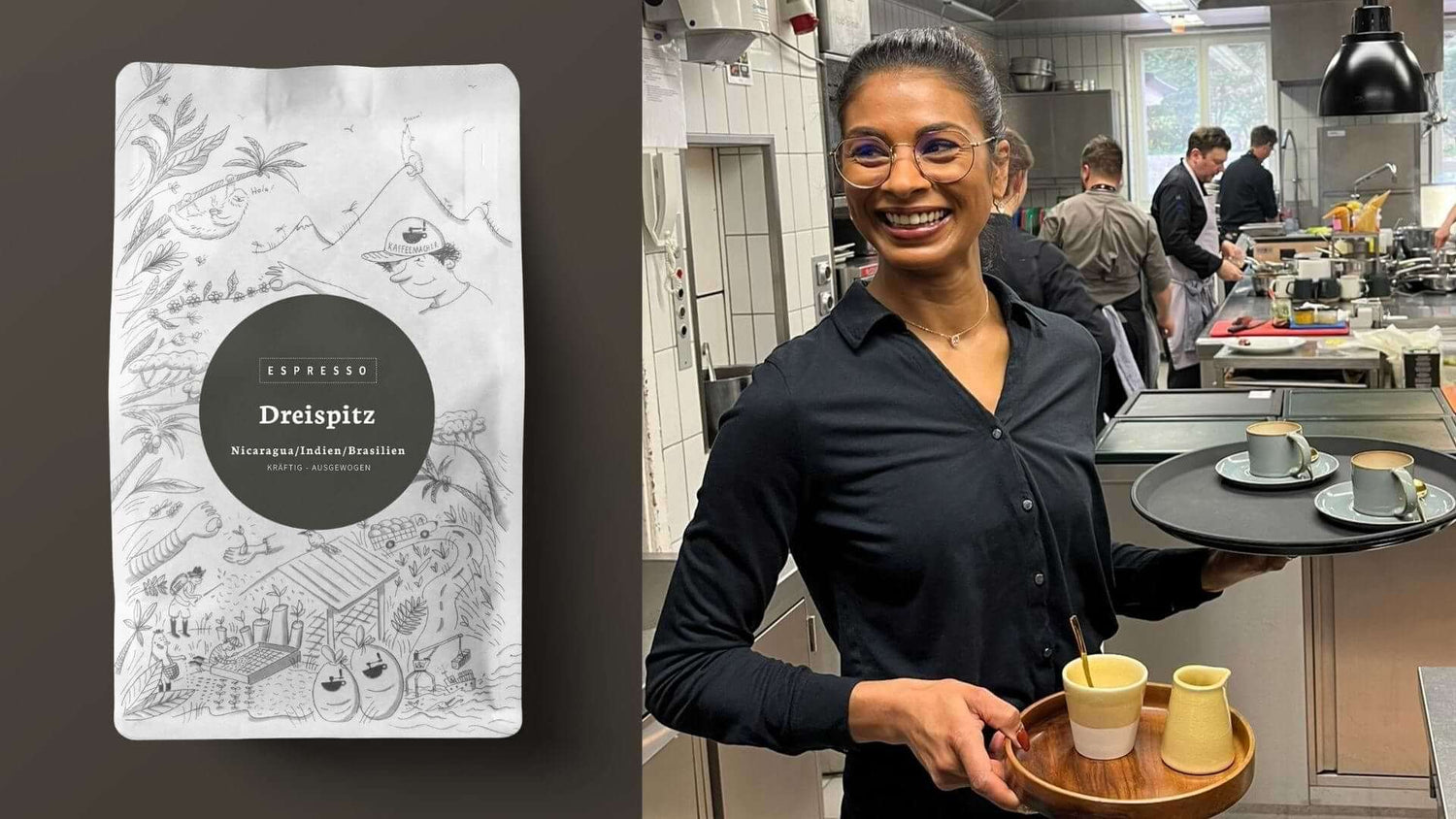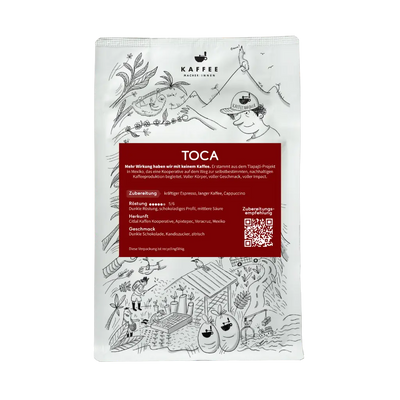Unfortunately, specialty coffee in Michelin-starred restaurants is still far too rare. Yet, a gourmet temple would be the perfect place to find delicious coffee. Exceptions are rare, which makes us all the more excited about the new project with Restaurant Stucki in Basel.
Tanja Grandits and her team have been serving our Dreispitz espresso since March 2022. We are delighted with this partnership, as specialty coffee is still underrepresented, especially in high-end restaurants.
Our espresso at Restaurant Stucki, Basel
Tanja Grandits has now earned two Michelin stars and has been running the Stucki restaurant on the Bruderholz in Basel since 2008. She was named “ Chef of the Year ” in 2014 and 2020 and published her sixth book in 2018. In December 2021, SRF filmed a beautiful and entertaining portrait that takes a look behind the scenes at Stucki.

For years, Restaurant Stucki has been one of the gourmet temples in Switzerland and far beyond. We've always thought how wonderful it would be if our two philosophies could converge – Tanja Grandits, who places flavor and balance at the heart of her work, and us, who seek precisely that in coffee.
At the beginning of 2022, a team of three led by Tanja Grandits visited us at the roastery. We drank extreme filter coffees, slightly milder ones, and tried everything from classic espresso to fruity bombs. Together, we found what we were looking for at Dreispitz Espresso – named after our first roastery location in Dreispitz Basel.
What’s in Dreispitz Espresso?
The Dreispitz is a blend intended to bridge different taste worlds. It's not for nothing that we often refer to it as a "bridge coffee with a high standard."

The coffee blend consists of three equal parts coffees from Brazil, India, and Nicaragua. And there's a reason for this: each coffee adds another component to the Dreispitz that they wouldn't have on their own.
The Dreispitz espresso is full-bodied and chocolatey. It is carried by a creamy texture and structured by a delicate acidity. This pleasant acidity lingers in the aftertaste, pairing with the powerful Robusta notes.
Where do the individual coffees come from?
Brazil: APAS Cooperative
A dry-processed coffee from local varieties provides the base for the blend. The coffee tastes nutty, reminiscent of milk chocolate, and is low in acid.
Nicaragua: Finca Santa Rita, Coffee Makers Farm
A washed coffee from our own and neighboring farms in the Dipilto region of northern Nicaragua. The coffee is rich, dark chocolatey, with a fresh, citrusy acidity.
India: Kanana Specialties
The semi-washed Robusta (honey processed) from Kanana Specialities is extremely velvety, heavy, and has a long, strong aftertaste of cedar wood.
No half measures
Shortly after we agreed to collaborate, Stucki sent the entire service team to our academy. We worked intensively on the machines and grinders for a day, discussing complex flavors, brewing ratios, and roasting profiles.

The team equipped themselves with new grinders and machines from Dä Kafimaa and has since been brewing the espresso quality we expect in our Michelin-starred restaurant. We're delighted with this collaboration and look forward to further flavor experiments with the Stucki team.
Not the rule
In October 2020, I recorded a podcast with Michelin-starred chef Andreas Caminada from Schloss Schauenstein. Caminada, along with Claude Stahel of the Black & Blaze roastery, built a mini-roastery on the grounds of Schloss Schauenstein. There, Caminada and his team roast specialty coffees in a way that preserves their character. With the right equipment and an understanding of the preparation process, they bring this experience to the cup.
"Of course," you might think. Not really – in Michelin-starred kitchens, where fresh, high-quality, and precisely selected ingredients create new flavor combinations, a compromise is often chosen when it comes to coffee.
And it has to be easy to handle. Therefore, many people choose Nespresso. Chefs act as ambassadors and like to promote capsuled coffee.
Michelin-starred restaurants that also serve specialty coffee in Switzerland, Germany, and Austria remain relatively few. However, when major names reorient their coffee offerings and apply the same cooking precision to coffee, it's extremely consistent and perhaps even a new experience for guests.




